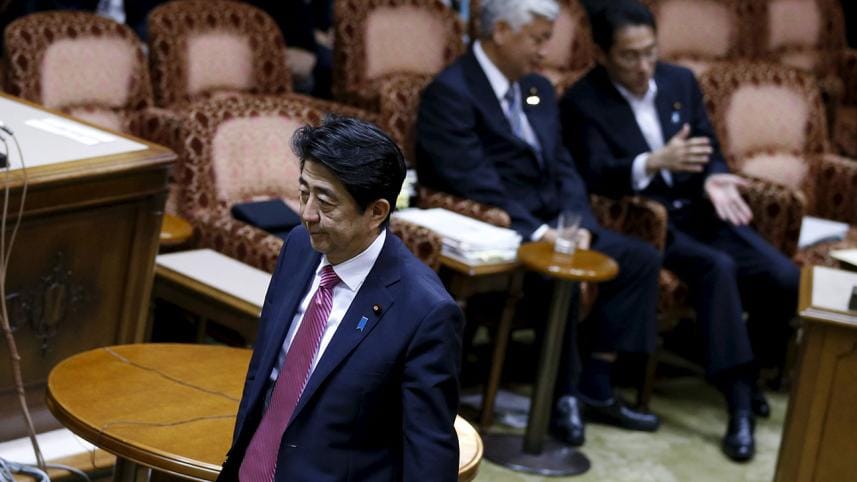Scuffles as Japan hold security debate

Scuffles have broken out in Japan's upper house ahead of a vote on a controversial move by the government to expand the role of the armed forces.
The bills would amend Japan's pacifist constitution to allow it to defend its allies overseas even when it is not under attack.
They have already been approved by the government-dominated lower house.
Opposition lawmakers on Thursday morning tried to physically prevent the debate from taking place.
In rare heated scenes, jostling members of the upper house surrounded the chairman of the security committee as he opened the debate, trying to snatch paperwork from him.
A session on Wednesday night was abandoned in the early hours of the morning after opposition lawmakers blocked entry to a room where Prime Minister Shinzo Abe and other ministers were waiting to discuss the bill.
Meanwhile, thousands of protesters rallied outside the parliament in Tokyo on Wednesday against the largely unpopular bills.
What is collective self-defence?
- Japan's post-World War Two constitution bars it from using force to resolve conflicts except in cases of self-defence.
- Abe's government has pushed for a change that would revise the laws such that Japan's military would be able to mobilise overseas when these three conditions are met:
- when Japan is attacked, or when a close ally is attacked, and the result threatens Japan's survival and poses a clear danger to people
- when there is no other appropriate means available to repel the attack and ensure Japan's survival and protect its people
- use of force is restricted to a necessary minimum
Japanese media reports have suggested that Abe's government wants to pass the bills before the country goes into a five-day holiday on Saturday, which could allow even bigger protests on the streets.
Abe says Japan needs to pass the bills to ensure regional peace and security in the face of rising Chinese assertiveness, and to participate more widely in global peacekeeping missions.
But opponents say the legislation violates Japan's post-war pacifist constitution, and could lead to it being dragged into US-led conflicts.
Despite the delays, the bills are likely to be passed eventually because Abe's ruling coalition has a majority in the upper house.



 For all latest news, follow The Daily Star's Google News channel.
For all latest news, follow The Daily Star's Google News channel.
Comments